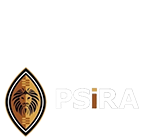Pre-employment polygraph screening of employees, especially in high risk industries is not only a good investment, it is becoming an essential part of the Human Resources Arsenal. A workplace polygraph test is nothing like the controversial “lie detector tests” depicted in movies and on television crime channels. Instead, it is a sophisticated system that brings together “a parcel of issues” that not only include the graphs and charts produced by the computers to which candidates are connected but also a host of verbal and non-verbal communications. Van Biljon says that Justicia screens job applicants for a number of major security companies. Shockingly, the pass rate is very low. “One of our clients had checked an applicant for a criminal record using his ID number. He came back clean and all his references checked out. However, he failed our polygraph test. Upon investigation, it was discovered that the applicant had used a false ID number and had pre-planned all his references. We also discovered that he was actually out on parole and was a well-known criminal!” He said the position for which he had applied was a highly responsible one in the company’s control room. “Not discovering this information could have led to the leaking of crucial and confidential information such as alarm details, codes, addresses as well as details of when property owners were away. He could also have manipulated alarms and reaction times, allowing thefts to take place while covering up for the syndicate for which he was working.” Marshall added that syndicated crime in the transport sector was rife. “Syndicates either attempt to bribe and intimidate drivers and their assistants or actually place members as employees. Often thefts reported as hijackings are found to be “handovers” where a driver has voluntarily handed over a consignment for cash or been intimidated to do so and we have been able to recover millions of rands worth of stolen stock.” Van Biljon says that polygraph tests don’t just uncover major crimes. They often pick up drinking and drug related problems as well as petty offences. “The most important thing to remember is that, if an individual has stolen once, and left unchecked, this could lead to an employee committing more serious offences in the longer term.” Polygraph tests are completely voluntary and an applicant must give written consent. Each candidate is prepared and shown how the polygraph equipment works, screened for health issues and questions are discussed upfront in order to dispel nervousness. Horne says questions are prepared according to each company’s needs. “In fact, both employees and employers are beginning to see polygraphs as a normal part of the employment process,” he says.
Polygraph Tests – Becoming an Essential Part of the HR Arsenal
LATEST POSTS

Justicia Investigations, established in 1992, is a private investigations agency based in Durban and Johannesburg.

